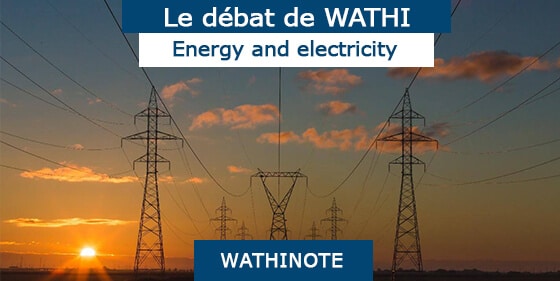

Authors: Patrick Kwabena Stephenson and Honoré Banda
Affiliated organization: The Africa Report
Type of publication: Online Article
Date of publication: 3 September 2019
Ghana is a relatively recent and small player in Africa’s hydrocarbon sector, and new discoveries by Norwegian start-up Aker on the Deepwater Tano Cape Three Points block could help production rise from a little less than 200,000 barrels per day (bpd) this year to about 420,000bpd by 2023, according to finance minister Ken Ofori-Atta.
Aker submitted its $4.4bn development plans this year for its Pecan field, where it argues between 600,000 and 1m barrels of oil can be found. Ghana’s oil and gas are helping position it among the continent’s fastest-growing economies, with growth forecast to reach 8.8% this year.
Ghana’s oil production is set to more than double over the next four years thanks to new fields coming on stream
The government is also hopeful that US supermajor ExxonMobil and its consortium partners will find commercial quantities of oil at its Cape Three Points block. AGM Petroleum, backed by Norwegian businessman Kjell Inge Røkke’s TRG Holding, also concluded a deal this year for its exploration of the South Deepwater Tano block.
Boom or bust?
Poor deal-making
The opposition and some of Ghana’s think tanks argue that the government is not striking good deals in the oil and gas sector. This year, opposition NDC members of parliament have been critical of the government’s negotiations in the Aker and AGM deals, saying Ghana is not getting its fair share and is foregoing the right to take on bigger equity stakes once discoveries are made.
A local think tank, the Imani Centre for Policy and Education, says the government stands to lose billions of dollars in oil revenue with deals that are too favourable to oil companies claims which the government denies, saying the critics do not understand the intricacies of the deals.
Whether oil is a boon or a curse depends in part on how the government rides the waves of boom and bust, how it uses the revenue it earns, how it supports the diversification of the economy and how it uses policy to ensure that the oil sector’s growth benefits the local private sector through contracts, partnerships and training
Big names like France’s Total, Italy’s Eni, Ireland’s Tullow and US-based Kosmos are in the running for blocks, with BP and ExxonMobil having since dropped out of the bidding.
Local content
The previous NDC government passed a local content law in 2013 that requires a minimum 5% equity stake in hydrocarbons exploration and production activities. A local-content policy framework from 2010 has largely been met in terms of management positions and general staff, but technical positions are where the progress has been slowest.
Amongst the government’s other targets are 90% local participation in the oil and gas value chain by 2020, a target judged by analysts from the outset as being overly ambitious due to the lack of financial capacity, ability to meet international standards and lack of technical training of many local firms.
Nonetheless, the value of contracts won by local firms has been on the rise. International oil companies are looking for local partners across the entire upstream value chain from direct participation, storage, transportation and haulage, to services and maintenance.
Bringing benefits to locals
Local think tank Africa Centre for Energy Policy’s data shows that local firms made $154m in deals in 2014, $249m in 2015 and $489m in 2016. Seaweld Engineering, founded in 2007 by its chief executive Alfred Fafali Adagbedu, built part of the floating production, storage and offloading unit produced for the Offshore Cape Three Points development.
The upstream oil sector is not a big employer, with the industry directly providing an estimated 7,000 jobs in 2015 for Ghana’s population of more than 28 million people
The Ghana Free Zones Authority is now looking into setting up an industrial zone targeting the oil and gas sectors at the western port of Takoradi to attract more local and international investment into the sector. There is much more potential for employment and economic benefits from manufacturing and other services targeting the industry.
The Ghanaian government wants to position the economy as a hub for West African oil and gas activity, seeking to succeed where neighbouring Nigeria has largely failed as exploration picks up in new frontier territories like Sierra Leone.
Les Wathinotes sont soit des résumés de publications sélectionnées par WATHI, conformes aux résumés originaux, soit des versions modifiées des résumés originaux, soit des extraits choisis par WATHI compte tenu de leur pertinence par rapport au thème du Débat. Lorsque les publications et leurs résumés ne sont disponibles qu’en français ou en anglais, WATHI se charge de la traduction des extraits choisis dans l’autre langue. Toutes les Wathinotes renvoient aux publications originales et intégrales qui ne sont pas hébergées par le site de WATHI, et sont destinées à promouvoir la lecture de ces documents, fruit du travail de recherche d’universitaires et d’experts.
The Wathinotes are either original abstracts of publications selected by WATHI, modified original summaries or publication quotes selected for their relevance for the theme of the Debate. When publications and abstracts are only available either in French or in English, the translation is done by WATHI. All the Wathinotes link to the original and integral publications that are not hosted on the WATHI website. WATHI participates to the promotion of these documents that have been written by university professors and experts.
